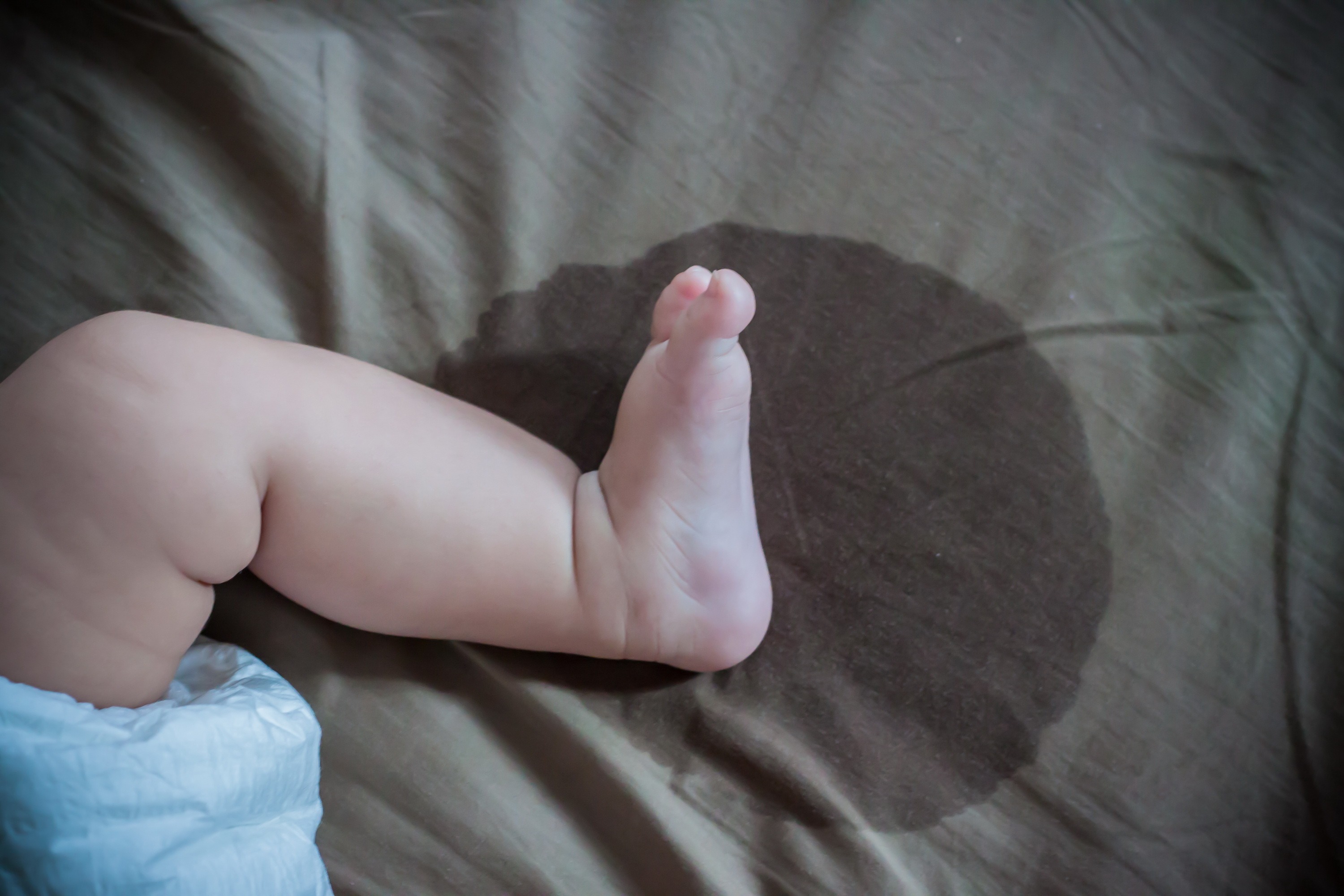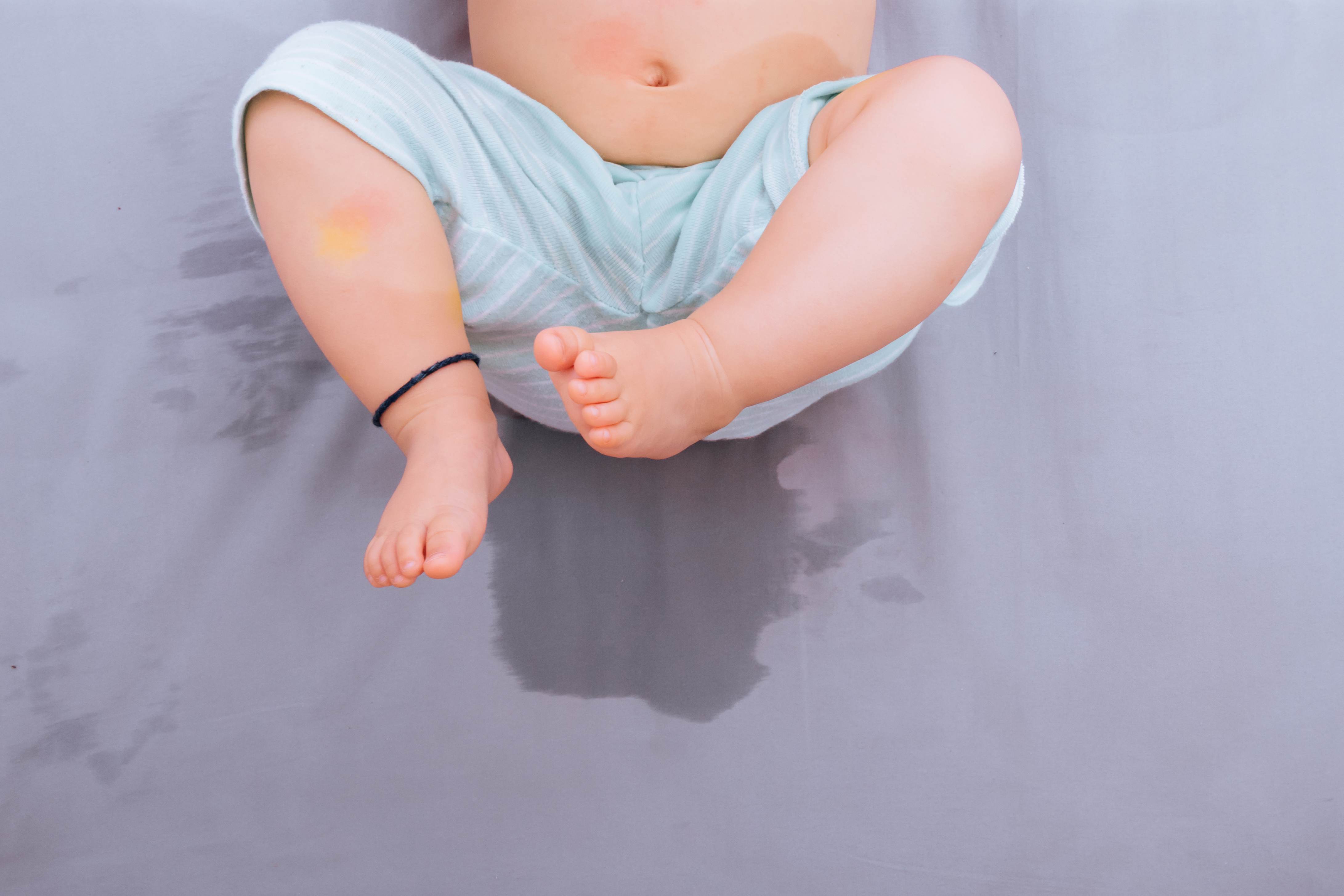
Once upon a time, Ding Ma was also a [little freshness] who could not freely talk about excrement and urine. However, since she gave birth to the baby, she has directly changed into a [heavy taste] of dealing with the baby during the meal and then being able to continue eating without changing her face.
The baby’s eating, drinking, pulling and scattering has also become Ding Ma’s most concerned problem every day. When the baby was still relatively young, a slight change in excrement, urine and fart would make Ding Ma suspect for a while whether there was a problem.
However, after looking up data, reading articles and consulting pediatricians, Ding Ma found that some of the problems that worried me were not problems at all.
I believe that like Ding Ma, there are still many parents who care about the baby’s excrement and fart. I hope today’s article can help parents worry less and calm more.
First, the poop thing
The baby did not pull today, pulled several times, the poop was soft or not, what color… Which of these poop problems that troubled parents are the real problems?
Of course, to distinguish whether there is a problem, we first need to know what normal poop is like.
1. Normal poop in everyone’s mind
This kind of poop can basically be regarded as [textbook] poop. Many parents hope that their babies’ poop will be like this every day, but standard poop is not common.
2. Normal poop that looks abnormal
Feces have milk flaps: Feces will appear milk flaps or yellow-white milk clots, mainly because the fat or casein content in breast milk or formula milk exceeds the baby’s absorption capacity. The baby cannot absorb that much and will naturally be excreted together with feces.
Yellowish-green poop: Infants’ intestinal tract is relatively short and peristalsis is relatively fast, so the time for food to stay in the intestinal tract is often relatively short. If the digestion time is not long enough (bilirubin is not completely converted into fecal bilirubin but oxidized into biliverdin), the color of poop will tend to be yellowish-green.
Dark green poop: If your baby is supplementing iron, adding a supplementary food with fortified iron, or if the supplementary food contains more dark green vegetables, green poop may appear. However, if none of these conditions exist, your baby will have black poop, and you should see a doctor in time.
Stool with mucus: Infants’ gastrointestinal function is not well developed, and the mucus secreted by the intestinal surface cannot be well reabsorbed, so some mucus may be pulled out together with stool. Under normal circumstances, only a small amount of mucus will be mixed in feces. If there is too much mucus, we should be alert to the possibility that some gastrointestinal diseases have occurred.
Bloodshot stool: As for the reason why healthy babies have bloodshot stool, There is no clear conclusion, may be related to the baby’s gastrointestinal tract development is not perfect. In addition, intestinal allergy may also appear bloodshot. But as long as the baby’s spirit is good, weight, body length development, eating and sleeping are good, you don’t have to worry too much. However, if the bloodshot situation persists, you need to see a doctor.
I haven’t pulled for several days: Three to six weeks after the baby was born, Energy consumption increases, The ability of digestion and absorption is enhanced, Breast milk is digested and absorbed more thoroughly, with less residual solid residue. It needs to be accumulated for several days to form stool, but it is normal stool that is discharged without induration and defecation without painful manifestations. This kind of situation is more common in breast-fed babies. If it is milk powder fed babies, it is necessary to consider constipation if it is not pulled for a few days.
Eat and pull: From the time food is eaten to the time it is finally excreted, It takes dozens of hours, The same is true for babies, Even if it is such an easily digestible food as breast milk, Also need at least several hours, it is impossible to just eat in and pull out. Moreover, the baby itself is not well controlled defecation, and intestinal peristalsis accelerates after eating. It is easy to pull even while eating as soon as you finish eating, but what you pull out is definitely not what you just ate, but what you have already digested and completed is poop in the large intestine.
3. Be careful in these situations
Abnormal stool color: stool is gray, not fetal stool but black stool, blood red or even poop mixed with blood.
Diarrhea or constipation: For younger babies, the frequency of defecation cannot be used to judge, but also the characteristics of defecation and other symptoms, such as fever, vomiting, defecation crying, refusal to defecate, bloody stool, etc., should be combined. If parents cannot judge, they need to find a doctor in time.

Two, the urination of those things
Having said the heaviest taste of excrement, let’s talk about urine with slightly less heavier taste.
1. What is normal urine like?
Under normal circumstances, the baby’s urine is usually light yellow or dark yellow, and the urine is transparent and clear, so the baby will not feel uncomfortable during urination.
The frequency and amount of urine urinated by the baby are related to the amount of milk ingested and age.
- In the first few days after birth, the intake of milk is relatively small, urinating about 4 ~ 5 times a day; After one week of birth, urination will obviously increase, even reaching 20-25 times a day. When the baby is about 1 year old, it will basically stabilize at 10 ~ 15 times a day. At the age of 12, it is similar to adults, 4 ~ 6 times a day.
2. Which situations need not be too worried?
Pink crystals: baby’s kidney function development is not perfect, in the weather hot or milk is not enough, diapers may appear pink traces, this is usually urate crystals in urine (not blood), increase the number of times of feeding can often improve. If diapers have pink traces for a long time, it is recommended to consult a doctor.
The urine is yellow and the urine is less: this situation is relatively simple. The darker the color, the thicker the urine, and the thicker the urine, the less water the baby takes in. For babies within 6 months old, breast milk (especially front milk) or formula milk (must be mixed in proportion) can be appropriately increased. For babies who have already added supplementary foods, more water can be appropriately fed.
Big Baby Wet Bed: The ability of most babies to control the bladder, It is very normal to wet the bed occasionally at night before the age of 5. It is not intentional to wet the bed, but it is really impossible to do it. If the child is over 6 years old, it will wet the bed during the day and night or the bed has affected the normal life of the child, then it is recommended to take the child to see a doctor and intervene as soon as possible.
3. Be alert to urinary tract infection
Don’t think that babies will not have urinary tract infection. In fact, their chances of urinary tract infection are still relatively high.
The most obvious symptom of urinary tract infection in the baby is fever. In addition, if the baby often cries, refuses milk, vomits, diarrhea, dysphoria, and even resists urination, the crying increases during urination, or urinates frequently, but the amount of urine is not much each time, the urine is turbid, the urine has foul smell or there is blood in the urine, etc., urinary tract infection may occur, and parents should be more vigilant.
Three, fart of those things
In fact, there is not so much to say about fart, but there are quite a few parents who care about fart.
1. It’s not a matter of fart odor,
The gas produced by the decomposition of food by bacteria in the intestinal tract is the main component of fart.
The main food for babies under 1 year old is breast milk or formula milk, Lactose in the action of intestinal bacteria, will produce a large amount of gas. At the same time, the baby will swallow more gas when eating milk or crying, and some of the gas will enter the intestinal tract and become a part of fart. If there is more protein in food, through the decomposition of intestinal flora, it will produce gas with odor.
However, this is not a problem. As long as the baby has no other situation, whether it is more farts or smelly farts or more and smelly farts, it is not a matter for what.
Step 2: Pay attention when there is no fart.
It doesn’t matter if you have a fart or a fart, but parents need to pay attention to it if you don’t have a fart (or can’t put it out).
The most common situation is flatulence, baby flatulence is also easy to lead to colic, making the baby cry more than, difficult to appease. Parents can help the baby discharge the gas in the stomach and intestines through the plane to relieve the discomfort of the baby.
Ding Ma already knows everything about the baby’s excrement and urine. I hope that parents who have read the article can calm down in front of the baby’s excrement and urine.
